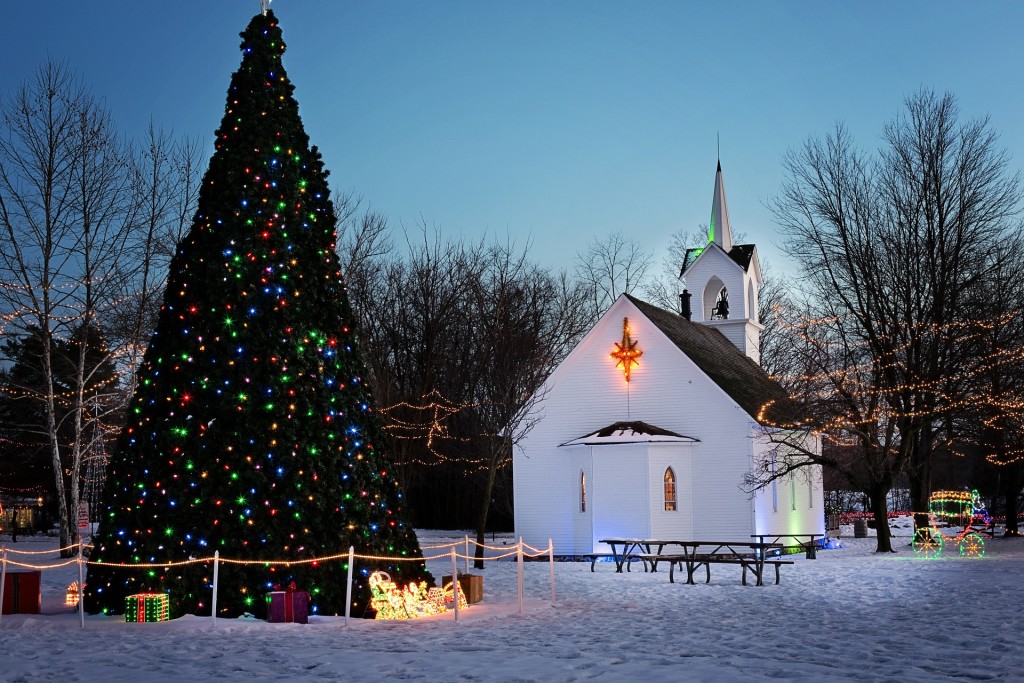More American millennials now identify Christmas as a “cultural” rather than a “religious” holiday. Younger Americans are increasingly likely to embrace secular Christmas traditions while abandoning its faith-based ones, pointing to a troubling trend in America.
According to the new survey by the Pew Research Center, 43 percent of millennials said Christmas was a cultural holiday, while only 40 percent described it as religious. The majority of respondents from the Silent Generation, Baby Boom, and Generation X said Christmas was religious. However, younger generations progressively edged toward describing the holiday as cultural instead.
Millennials were also the least likely to attend a religious service on Christmas Eve or Christmas Day, as compared to older generations. While ready to ditch the overtly religious parts of Christmas, Pew Religion Editor Michael Lipka said that “Millennials celebrate many of the cultural parts of Christmas at roughly equal rates to older Americans – and sometimes at even higher rates.”
The worrisome trend toward rejecting the Christian message behind Christmas reflects Millennials’ posture toward religion in general.
“Millennials are less religious than older Americans and less likely to identify with a religious group, and those traits are reflected in the way they celebrate Christmas,” Lipka wrote.
This Christmas season “atheists and their fellow freethinkers” renewed their “attempts to prevent and disrupt Nativity displays around the country,” IRD contributor Derryck Green reported recently. But Christmas in America may succumb to a more subtle but no less pernicious threat.
The “silent killer” of Christmas might end up being the spiritual apathy, mind-numbing consumerism, and irreligious lifestyle of young Americans rather than shrill attacks by atheists. Americans will likely still celebrate Christmas for years to come, at least in name. But it will live on as a feel-good, consumer-centric holiday, void of Messianic meaning.
If the trend revealed in the Pew’s recent survey persists, the explicit celebration of Christ’s incarnation, the virgin birth, and God’s merciful plan for redemption will slide toward extinction in America.
While disheartening, this is hardly surprising. Not even most Christian millennials have a solid grasp of Christ and the gospel. Can anyone truly celebrate Christmas without a firm understanding of the Messiah and what He represents?
IRD contributor Brian Ballas argued that millennials had a “warped” concept of Christ. He quoted New York Times columnist Ross Douthat, who said America wasn’t suffering from “too much religion, or too little of it. It’s bad religion: the slow-motion collapse of traditional Christianity and the rise of a variety of destructive pseudo-Christianities in its place.”
With a theologically twisted vision of Christ, or an outright rejection of His message, we can’t expect Christmas to retain any real meaning in our country anymore. The American Church is losing Christmas because it is also losing the hearts and minds of its young people.





Comment by ken on December 22, 2015 at 11:52 am
Where do you draw the line between religious and cultural? We have a Christmas tree, which is not Christian in origin, but hanging on it are ornaments depicting the Nativity. The same people who hang strings of lights on their home also set out Nativity scenes.
Comment by Asking Questions on December 22, 2015 at 12:20 pm
Do you think if we looked at the same research questions from 30 years ago that younger people would still proportionately show up as less religious? In other words, do people become more focused on the eternal as they grow older?
Comment by Gregg on December 22, 2015 at 5:58 pm
Too many Millennials grew up in broken homes. One of the first things to go in a family after a divorce is church attendance. Another batch of Millennials grew up in a home where the parents were never even married in the first place. Combine that with the 24/7 barrage against belief, traditional values, and Christian churches in general – it’s a wonder that young people believe anything at all.
Comment by Krissy H on December 23, 2015 at 11:28 am
Why is this a troubling trend? With more knowledge comes being more open minded, which isn’t a bad thing. I am a millennial and I view it as cultural and not religious also. I think our generation is the first to really open our minds about religion and decide for ourselves if we agree with it or not, and not just because someone told us to. In my opinion, to blindly believe something is what’s troubling.
Comment by Ben Welliver on December 26, 2015 at 10:12 am
You confuse Wikipedia with knowledge.
The internet gives you fast access to information – information that you have no way of verifying. Like all people, you read with a bias – you read things that confirm what you already believe.
Comment by Krissy H on February 1, 2016 at 2:28 pm
What in the world are you talking about? & why are you referencing Wikipedia? I don’t get my facts about religion from Wikipedia. This comment is completely biased. I grew up in a very conservative Christian household and I strongly believed it for a very long time. After I started studying the bible with my ex preacher, is when it started making no sense. So no, a preacher gave me doubts, not Wikipedia. Get your facts straight before you start spouting nonsense.